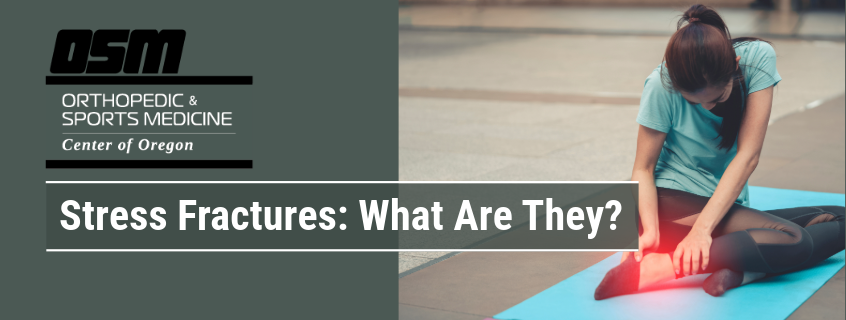Stress Fractures: What Are They?
A stress fracture is a subtype of fracture or “broken bone.” However, this type of injury results from repetitive motions and constant use, causing microdamage, and eventually, a fracture. The repetitive stress from activities such as running or jumping weakens the bone, and when the body is unable to produce new bone faster than it is resorbing it, a stress fracture occurs.
Common Causes and Risk Factors
This condition is most common among athletes who participate in running and jumping (e.g., long-distance runners, ballet dancers, and soccer players) as well as military recruits. It usually affects the lower extremities, specifically the tibia (shin bone), metatarsals (foot bones), and navicular bone (ankle bone).
Symptoms and Diagnosis
Symptoms include localized pain that worsens with physical activity and resolves with rest. Physical exam findings usually consist of localized tenderness, and occasionally, swelling.
A diagnosis of a stress fracture is usually made clinically based on history and physical examination. Initial X-rays may be normal. Magnetic Resonance Imaging (MRI), the gold standard for diagnosis, will demonstrate bone marrow edema and/or periosteal edema. In more severe cases, MRI may reveal a visible fracture line.
Treatment and Recovery
Treatment for stress fractures involves activity modification and rest. Analgesics are used for pain control; however, nonsteroidal anti-inflammatory drugs (NSAIDs) should be used cautiously, as they can inhibit bone healing. In some cases, the provider may prescribe immobilization, such as a boot, to provide additional support. Recovery typically takes 6–8 weeks. In severe cases, the patient may need to be non-weight-bearing, require prolonged immobilization or even undergo surgical intervention. Recovery for severe stress fractures typically takes 4–5 months.
The Orthopedic & Sports Medicine Center of Oregon is an award-winning, board-certified orthopedic group located in downtown Portland Oregon. We utilize both surgical and nonsurgical means to treat musculoskeletal trauma, spine diseases, foot and ankle conditions, sports injuries, degenerative diseases, infections, tumors and congenital disorders.
Our mission is to return our patients back to pain-free mobility and full strength as quickly and painlessly as possible using both surgical and non-surgical orthopedic procedures.
Our expert physicians provide leading-edge, comprehensive care in the diagnosis and treatment of orthopedic conditions, including total joint replacement and sports medicine. We apply the latest state-of-the-art techniques in order to return our patients to their active lifestyle.
If you’re looking for compassionate, expert orthopedic and podiatric surgeons in Portland Oregon, contact OSM today.
Phone:
503-224-8399
Address
17355 Lower Boones Ferry Rd Suite 100A
Lake Oswego, OR 97035
Hours
Monday–Friday
8:00am – 4:30pm



